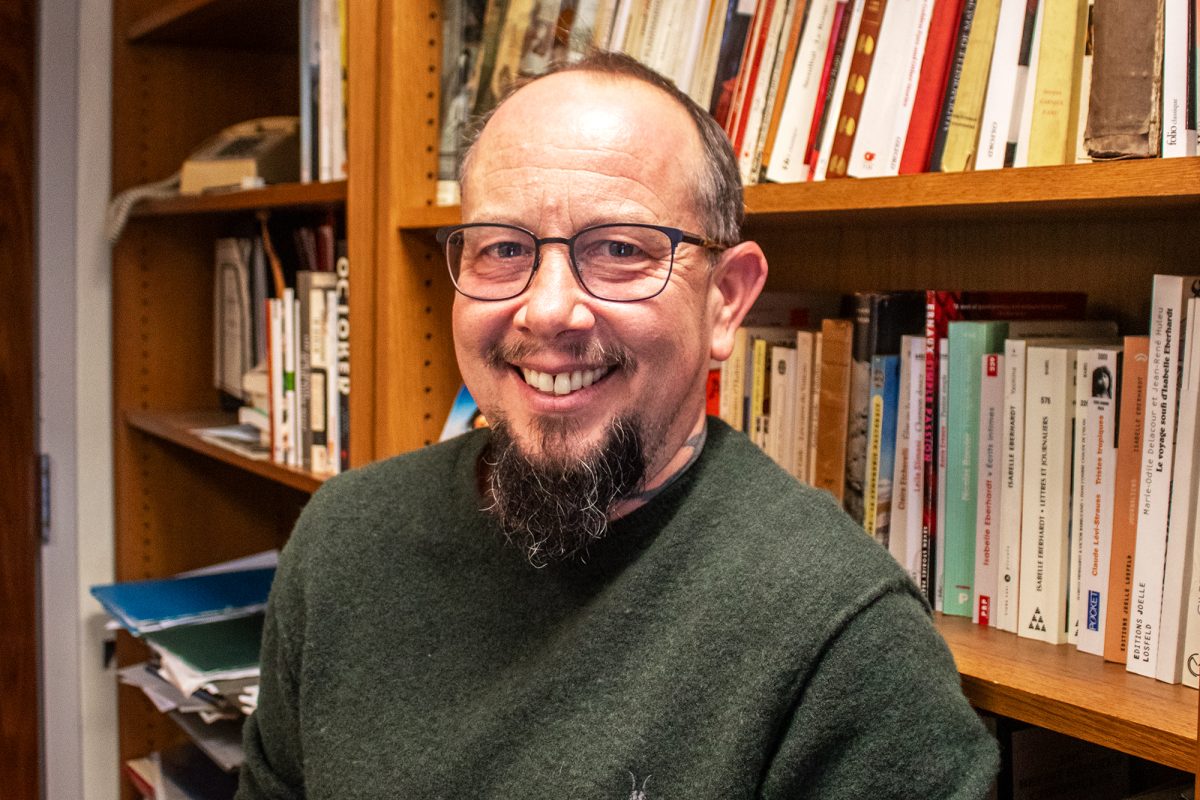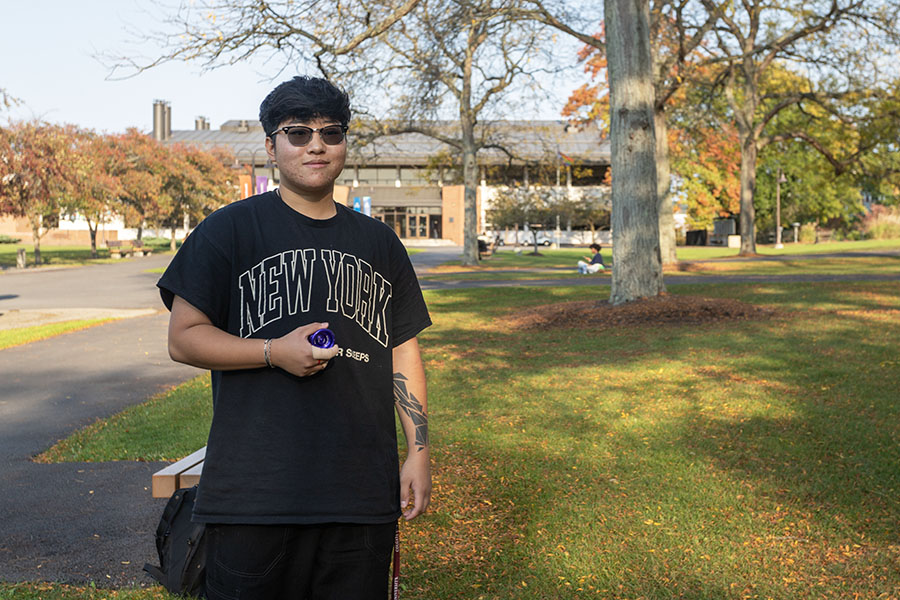Ithaca is no stranger to the DIY music scene. It is primarily dominated by college students hailing from all over, but one band has its roots in Ithaca: Vicious Fishes.
Vicious Fishes formed in 2018, beginning with scribbling their name on a pizza box in high school. The band began with Jonas Puryear and Jacob Gould and soon expanded with the addition of Liam McDonald and Zeb Whitford. Within six months, the four were jamming regularly and developing their sound.
Today, Vicious Fishes is a four-piece band featuring McDonald on vocals and guitar, Puryear on guitar, Whitford on drums and vocals and Gould on bass. Last September, the band released its fifth studio album, “Oslo,” on major streaming platforms, including Spotify and Apple Music. On April 5, the band alongside a bill of other local Ithaca bands headlined at the Nocturnal Café located at 103 S. Geneva St.
Contributing Writer Thuweiba J-Elmi sat with Vicious Fishes to talk about their latest album, musical influences and how the band came to be.
This interview has been edited for length and clarity.
Thuweiba J-Elmi: What drew you to music? What’s so magical about it to you?
Zeb Whitford: We all grew up involved in music in some capacity, whether it was playing music or listening. The love of music for all of us was started at a pretty early age. Playing music is some of the few times that we actually all get to hang out together because Liam lives in New York City now, and all of us are super busy with work and other bands and stuff. So now it’s like, anytime we can play a show, we just get to hang out with each other, which is really nice. And we’ve known each other since we were kids.
Liam McDonald: A lot of it, too, is [that] the people [who] come to the show are very generous and they seem to enjoy it. And speaking from personal experience, I really enjoy that they enjoy it.
TJ: What are your musical influences?
ZW: Our influences change pretty often. When it started, [we were listening to Nirvana] but we were also into country, funk and random stuff like that. Some of our songs lean more into those genres depending on what we were listening to at the time. Our core influences are bands like the Pixies, the Violent Femmes and Nirvana, but there are subgenres in there that shape our sound. We all listen to a lot of music — we just appreciate it.
TJ: Talk to me about your latest album, “Oslo.”
ZW: We recorded it in Binghamton with our friend Hunter Davidson. … Two records ago we released an EP called “All the Time.” We recorded it with him. We did it over six months of songs that we’ve been playing for two years or so. I think we added one song that Liam had brought to practice after we had done the first session. … Half the album was written — what we thought would be the end of it — and then the other half was just like, we have this idea that we’ve kind of been playing, but not ever actually finished. And then [we] wrote it there, which was really fun and very cool and very different for us which is very uncomfortable, but also I think influenced how that album kind of sounds. … Liam was writing lyrics in the studio as we were listening to mixes. … [It was] very on the fly in between getting halal and going to Wegmans for subs.
Jonas Puryear: Everyone worked really hard. We recorded 13 songs in four days, and half weren’t fully written yet. Some were brand new. The energy in the studio was great — The Business District has an awesome vibe. But it was intense. You’d work for hours, then just sit around playing Solitaire and listening to mixes for eight hours straight.
TJ: What have been some of your favorite shows to play?
ZW: One of the most memorable shows for me was one of the last times we played in North Carolina. We played a Thursday night set on one of the bigger stages. We started the show, and there’s maybe 20 people there, and then the band on the stage next to us finished up, then a wave of people started coming to the stage, which was really cool. And then we were the last of the night. And that was very fun, it was just super fun. And the energy in the crowd was really good.
TJ: Peering into the past for a moment, what do you think your past self would think of your current evolution, or you today as a band and maybe individually?
ZW: I think we’d be really shocked that we are still playing music together — and have made it out [of where we started playing] in this church in Enfield. … I think we’d be very surprised that we’ve played at actual music venues and have played outside of Ithaca. I mean, we started this when we were in high school as a way to kind of mess around and hang out. I think we’d be genuinely shocked that we have done anything after the time that [we] had graduated from high school.
TJ: What’s next for Vicious Fishes?
ZW: The goal is to make a compilation live record and release that, probably by early next year and write a bunch of new music. We have a bunch of ideas that we haven’t had the time to really finalize in the songs. So, I think over the next six months, we’re going to be writing a lot and finishing up some new songs, which is gonna be very fun.














